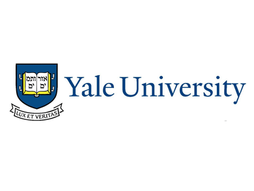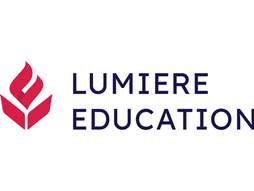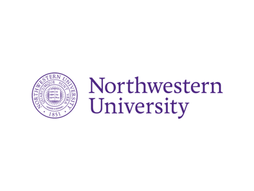10 Academic Competitions for High School Students
If you’re a high school student looking to gain experience in a subject outside the classroom, consider academic competitions! Engaging in competitions such as Bees, Olympiads, and subject-specific quizzes can push you to deepen your knowledge, sharpen your skills, and challenge yourself in ways that traditional coursework may not provide.
These experiences will also allow you to develop essential skills such as critical thinking, problem-solving, and effective communication, which are highly valued by admissions officers. If you’re gunning to pursue research or specialized academic paths, competitions offer the chance to work on advanced projects, often under the mentorship of experts in the field. This early exposure to research methodologies and innovative thinking can help secure a future internship, or a solid letter of recommendation.
In this blog, we’ll explore 10 academic competitions for high school students spanning various fields including science, mathematics, history, arts, and more!
Location: Regional rounds are held in different cities every year. Science Bowl Finals are held in Washington, DC.
Eligibility: All high school students can participate.
Deadlines: The dates for the regional rounds vary, and you must register no later than 3 weeks before the event. The participant registration typically starts in October and ends in December.
Dates: The Regional Competition typically takes place between January and March. The National Event is typically held from April 24 to 28.
Cost & Prizes: There is no cost to participate. Cash prizes and scholarships are offered.
Running since 1991, the National Science Bowl (NSB) is a prestigious and highly competitive event that aims to motivate students to excel in math and science. Each year, the competition attracts over 1,000 students, challenging them to their knowledge across various subjects, including physics, energy, Earth science, chemistry, biology, and math.
To participate, students must first compete in regional rounds, which you can find here. Teams of 4-5 students compete locally, and only the regional winners are invited to the Science Bowl Finals held in Washington, D.C. This final stage brings together the brightest young minds to test their scientific prowess on a national platform. NSB provides a comprehensive resource pool to aid preparation, including the competition rules, tips for success, and various study materials to help teams excel. Here’s some insight and tips to help you ace the bowl! You can also check out the Physics Bowl if you’d rather participate in a more physics-focused challenge.
Location: The national finals will be held in New York.
Eligibility: All high school students are eligible to participate (in teams of 3-4 members):
The David Ricardo Division is for first-time competitors who have taken no more than one economics course.
The Adam Smith Division is for AP, international baccalaureate, and honors students (as well as returning competitors).
Deadlines: The registration for the state-level events closes in March and the registration for the national finals closes in May.
Dates: The national semi-finals are typically held between April 22-26 and the national finals are usually between June 1-3. Dates for state-level events vary.
Cost & Prizes: No cost to participate; Prizes are 1st place $1,000 | 2nd place $500 | 3rd place $250 | 4th place $125.
The National Economics Challenge (NEC) is a prestigious competition that rigorously tests high school students' understanding of economics. Teams of students compete in a series of exams that cover key areas such as microeconomics, macroeconomics, international economics, and current economic events. This comprehensive examination evaluates students' grasp of economic principles and their ability to apply these concepts to real-world scenarios.
Participants compete for cash prizes, recognition, and bragging rights in one of two divisions: The Adam Smith division is for advanced placement, baccalaureate, honors students, and returning competitors, and the David Ricardo Division is for students participating in the NEC for the first time and who have taken no more than one economics course. Working in local teams with instructors and economics professionals serving as coaches, students compete first at the state level. The winning team from each state moves on to the First Round National Challenge to vie for their spot in the National Semi-Finals. The top four teams in the semi-finals advance and receive an all-expense paid trip to New York City to compete and earn cash prizes. For a deeper dive into the NEC, check out this article. Here are a few more economics competitions for you to consider!
Location: University of Bath, United Kingdom
Eligibility: All high school students are eligible to participate!
Deadlines: The online registration of contestants typically closes in May. You can access detailed information on deadlines here.
Dates: July 11 to 22
Costs & Prizes: There is no cost to participate. Gold, silver, and bronze medals are awarded, along with a few honorable mentions.
Note: Olympiads are typically regional-level exams, and once you score well on those, you qualify for the national Olympiad (United States of America Mathematical Olympiad - USAMO). Based on your performance at the national level, you can qualify for the International Olympiad.
The International Mathematical Olympiad (IMO) is the most prestigious competition for high school students with exceptional mathematical skills. During this competition, participants deal with six intricate problems, each designed to test their problem-solving abilities across algebra, geometry, number theory, and combinatorics. The competition's rigor is evident in the diversity and complexity of the challenges presented. Distinctions are marked with prestigious medals – gold, silver, and bronze – awarded to the top performers. Additionally, honorable mentions are given to recognize students’ efforts. Beyond the accolades, achievements in the IMO can be a significant highlight on a student's college application. Top-performing students are often recognized by the IMO as having demonstrated excellence in a highly competitive field.
Location: Isfahan, Iran
Eligibility: All high school students are eligible to participate!
Deadlines: The pre-registration forms typically close in March and the final registration ends in May.
Dates: Typically July 21 to 29.
Costs & Prizes: Participation fees for regular delegation (5 students, 2 leaders) is EUR 3500. You can check out the various fees and expenses here. Medals and honorable mentions are awarded.
Note: Olympiads are typically regional-level exams, and once you score well on those, you qualify for the national Olympiad (USA Physics Olympiad - USAPhO). Based on your performance at the national level, you can qualify for the International Olympiad.
The International Physics Olympiad (IPhO) is a prestigious global competition for high school students who excel in physics. Participants are immersed in a rigorous blend of experimental and theoretical challenges that cover classical mechanics, electromagnetism, thermodynamics, and quantum mechanics. This competition assesses students' deep understanding of physics principles and their ability to apply both practical and theoretical problem-solving skills. Top performers in the IPhO are awarded medals – gold, silver, and bronze – while additional recognitions are given for other outstanding achievements. Participating in this competition demonstrates a profound appreciation for the intricacies of physics and the ability to tackle complex problems with a scientific approach.
Location: Astana, Kazakhstan
Eligibility: All high school students are eligible to participate!
Deadlines: The registrations typically end in May.
Dates: July 7 to 14
Costs & Prizes: Information about the participation fees is not mentioned on the official website. Medals and honorable mentions are awarded.
Note: Olympiads are typically regional-level exams, and once you score well on those, you qualify for the national Olympiad (USA Biolympiad - USABO). Based on your performance at the national level, you can qualify for the International Olympiad.
The International Biology Olympiad (IBO) is a prestigious competition designed for high school students who excel in biology. Participants face a series of challenging exams that cover a wide range of topics, including molecular biology, genetics, physiology, and ecology. This competition ensures that students demonstrate not only a broad understanding of biological concepts but also their ability to navigate specialized areas within the field.
During IBO, students have to participate in Theoretical and Practical Exams. The Theoretical Exams encompass 100 tasks in largely closed-ended format (e.g., multiple true-false). These tasks cover all domains of biology and require students to apply their scientific knowledge in analyzing advanced biological phenomena. The Practicals typically fall into 3-4 laboratories. The content domains for each Practical are announced 6-12 months before an IBO. In the lab, students showcase biological skills by conducting investigations and analyzing data.
Location: The US Open round will be held across the country.
Eligibility: All high school students can participate.
Deadlines: Applications typically close in September.
Dates: The first contest is typically held in December, the second contest in January, the third contest in February, and finally the US Open takes place in March. The US Open is typically held from March 15-18.
Costs & Prizes: There is no cost to participate. Students receive recognition medals, and those who qualify at the national level will represent the U.S. at the International Olympiad in Informatics (IOI).
The United States of America Computing Olympiad (USACO) is a premier competition designed to challenge and inspire high school students interested in the dynamic field of computer science and programming. Participants tackle a series of algorithmic problems in successive rounds, progressing through the divisions of bronze, silver, gold, and platinum. These divisions represent escalating levels of difficulty, where students must demonstrate their growing proficiency and creativity in solving complex computational problems.
Throughout the competition, participants' programming skills are rigorously evaluated, highlighting their ability to devise efficient and innovative solutions. The top performers in USACO gain national recognition for their achievements and are invited to specialized training camps. These camps provide intensive training and preparation for some of the best students to represent the United States at the International Olympiad in Informatics (IOI) – a prestigious global competition.
Location: Virtual
Eligibility: Middle or high school students who are residents of a participating congressional district can participate. Students may compete as individuals or in teams of up to four students, in which at least two students must reside or attend school in the district.
Deadlines: Applications open on May 1 and the deadline to submit apps is October 24.
Dates: October 25 - November is the judging period and the results will be announced in December.
Cost & Prizes: No cost to participate. Winning apps can be displayed in the U.S. Capitol Building and featured on the House of Representatives website. Winners are also invited to attend a reception on Capitol Hill and may be awarded additional sponsor prizes.
The Congressional App Challenge is a district-wide competition organized by U.S. House of Representatives members. It’s a great opportunity for students eager to elevate their coding skills and apply their technical expertise to create impactful applications. Participants are challenged to design and develop their own innovative mobile or web app, navigating the complexities of computer science and problem-solving. The competition encourages addressing real-world problems through technological solutions.
Winners of the challenge gain recognition for their coding abilities and have the opportunity to present their creations to members of Congress and the broader tech community. Prizes often include scholarships, mentorship opportunities, and invitations to various tech events. The honor of winning the Congressional App Challenge is significant, as it demonstrates a student's capability to use technology for positive change. You’ll also get to present your apps to lawmakers and industry experts which will enhance your profile within the tech and innovation sectors. You can check out this guide on how to win the Congressional App Challenge!
Location: Rochester Institute of Technology, NY
Eligibility: All high school students are eligible to participate.
Deadlines: Applications typically close in March. The participant registration deadline is usually in May.
Dates: The finals will be held June 10 to 14.
Costs & Prizes: There is a $50 application fee plus a $425 participation fee per participant. Different prizes are awarded across the available competition categories.
The Genius Olympiad is an esteemed international high school competition emphasizing environmental issues, scientific innovation, and creative projects. Established in 2010, the Olympiad seeks to foster global collaboration and inspire students to address pressing environmental challenges creatively and scientifically. Participants from around the world submit projects in various categories, including science, art, writing, and design, showcasing innovative solutions and creative expressions related to environmental awareness and sustainable development.
The competition's judging criteria are comprehensive, evaluating the creativity, scientific rigor, environmental impact, and practical applicability of the projects. Winners are honored for their exceptional contributions to environmental sustainability and awareness, receiving bronze, silver, and gold medals.
Location: London, UK (for IHO 2025)
Eligibility: All high school students are eligible to participate!
Deadlines: All registration and payment deadlines are typically in June.
Dates: The IHO typically takes place in July.
Costs & Prizes: The registration costs range from $1,995 to $3,195. Medals and honorable mentions are awarded.
The International History Olympiad is a biennial celebration of history attended by the best primary and secondary school history students from around the world, featuring competitions, field trips, social activities, and much more. IHO takes place every other year. The 2023 IHO took place in July in Rome, Italy. You can qualify for the IHO through the National History Bee and Bowl tournaments, the US History Bee, or the International History Olympiad Qualifying Exam.
The International History Olympiad is a distinguished academic competition that evaluates participants' knowledge and comprehension of historical events, figures, and themes. Participants tackle written exams that cover a broad spectrum of historical topics, requiring them to demonstrate detailed knowledge of specific events, periods, and notable historical figures. The buzzer rounds test participants' quick thinking and reflexes as they compete head-to-head to answer questions in real-time. Additionally, the competition often includes simulation games, historical reenactments, and research-based projects, allowing participants to apply their historical knowledge in engaging and practical ways.
Success in the History Olympiad often involves excelling in both individual and team events, with participants accumulating points across various rounds. The scoring system is designed to reward not only a deep understanding of historical facts but also critical thinking and analytical skills. If you’re keen on pursuing history competitions further, you can check out National History Day (NHD)! Students interested in the field of linguistics can consider the International Linguistics Olympiad (IOL).
Location: Varies for every local and national exam.
Eligibility: Open to all US-based high school students.
Deadlines: Applications typically close in January.
Dates: The dates are typically as follows:
Local Exam: March 1-24
National Exam: April 13-21
Study Camp: June 2-14
International Chemistry Olympiad: July 22-31
Costs & Prizes: There is no cost of participation; Cash prizes of up to $300, recognition, and awards are given to winners and runners-up.
USNCO is considered one of the most prestigious chemistry competitions in the US. It invites 1000+ students every year and assesses students on their knowledge of broad chemistry topics, chemical theories, and models, as well as students' problem-solving skills in the lab.
The competition is spread across 4 tiers, with students first appearing for local/regional-level rounds, and moving up to the National Level, as well as the International Level. Before the latter, the top 20 finalists from the National Round are invited to Study Camp, where finalists are prepared and tested, and based on their performance, four students are chosen to represent the U.S. at the International Chemistry Olympiad (IChO). The four international competitors are accompanied by mentors who translate the test, inspect laboratories, and arbitrate the scoring of the exams. Tip: Here are a few excellent resources to help you prep for your Olympiad, school exams, or even entrance tests for college!
Lumiere Research Scholar Program
If you would like to participate in a rigorous research program open to high schoolers, you should also consider applying to the Lumiere Research Scholar Program, a selective online high school program for students founded with researchers at Harvard and Oxford. Last year, we had over 4000 students apply for 500 spots in the program! You can find the application form here.
Also check out the Lumiere Research Inclusion Foundation, a non-profit research program for talented, low-income students.
Stephen is one of the founders of Lumiere and a Harvard College graduate. He founded Lumiere as a PhD student at Harvard Business School. Lumiere is a selective research program where students work 1-1 with a research mentor to develop an independent research paper.
Image Source: National Science Bowl logo









